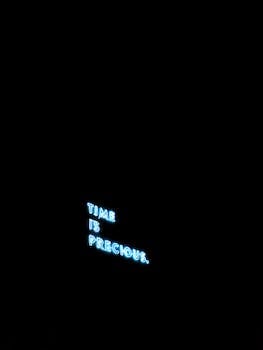

-
Table of Contents
Unveiling the Essence of Youth: Philippine Civilization Explored
Introduction
The young Philippine civilization is a fascinating subject to explore, as it encompasses a rich tapestry of philosophy, freedom, and follies. This civilization, which has evolved over centuries, offers a unique perspective on the human experience and the complexities of societal development. By delving into the philosophy, freedom, and follies of the young Philippine civilization, we can gain valuable insights into the cultural, historical, and social dynamics that have shaped this vibrant nation.
The Evolution of Philippine Philosophy: Tracing the Roots and Influences
The Philippines, a country rich in history and culture, has a civilization that dates back thousands of years. The evolution of Philippine philosophy is a fascinating journey that traces its roots and influences from various sources. Understanding the development of this philosophy provides insights into the values and beliefs that shape the Filipino identity.
The early inhabitants of the Philippines, known as the Austronesians, had a deep connection with nature. Their philosophy revolved around the belief in animism, where spirits inhabited all living and non-living things. This worldview emphasized the interconnectedness of all beings and the importance of maintaining harmony with the natural world.
With the arrival of the Spanish colonizers in the 16th century, the Philippines experienced a significant shift in its philosophical landscape. The introduction of Christianity brought about a new set of beliefs and values that coexisted with the existing indigenous philosophies. The influence of Catholicism can still be seen today in the strong religious devotion of Filipinos and their emphasis on family and community.
During the American colonial period in the early 20th century, the Philippines was exposed to Western ideas and philosophies. This period marked the beginning of a more secular and rational approach to philosophy. Filipino intellectuals, inspired by the Enlightenment and the ideas of European philosophers, began to question traditional beliefs and seek a more scientific understanding of the world.
One of the most influential figures in the evolution of Philippine philosophy is Jose Rizal, a national hero and polymath. Rizal's writings and ideas played a crucial role in shaping the Filipino consciousness and identity. He advocated for social and political reforms, promoting the idea of a united and independent Philippines. Rizal's philosophy emphasized the importance of education, critical thinking, and the pursuit of knowledge as a means to achieve progress and freedom.
In the post-colonial era, Filipino philosophers continued to explore and develop their own unique perspectives. The works of scholars such as Francisco Nemenzo Jr., Leonardo Mercado, and Emmanuel Levinas have contributed to the growth of Philippine philosophy. These thinkers have delved into various topics, including ethics, social justice, and the Filipino concept of "kapwa" – the idea of shared identity and interconnectedness.
The evolution of Philippine philosophy reflects the complex history and cultural diversity of the country. It is a fusion of indigenous beliefs, Spanish Catholicism, Western rationalism, and contemporary thought. This amalgamation of influences has created a unique philosophical landscape that continues to evolve and adapt to the changing times.
Despite the progress made in the field of philosophy, the young Philippine civilization still faces challenges and follies. Poverty, corruption, and social inequality remain pressing issues that need to be addressed. The pursuit of freedom and progress requires a collective effort to overcome these obstacles and build a more just and inclusive society.
In conclusion, the evolution of Philippine philosophy is a testament to the rich tapestry of influences that have shaped the Filipino identity. From the animistic beliefs of the early Austronesians to the introduction of Christianity and the influence of Western thought, Philippine philosophy has undergone a remarkable transformation. It continues to evolve, with contemporary thinkers exploring new ideas and perspectives. As the young Philippine civilization navigates its path towards progress and freedom, it must confront its challenges and follies head-on, drawing inspiration from its philosophical heritage.
Unraveling Freedom: A Critical Analysis of the Young Philippine Civilization

Exploring the Philosophy, Freedom, and Follies of the Young Philippine Civilization
The Philippines, a nation rich in history and culture, has a young civilization that is still in the process of unraveling its true potential. As we delve into the depths of this vibrant society, it becomes evident that the concept of freedom plays a crucial role in shaping its identity. However, a critical analysis of the young Philippine civilization reveals both the triumphs and follies that have emerged from this pursuit of freedom.
Philosophy, the cornerstone of any civilization, holds a significant place in the hearts and minds of the Filipino people. From the ancient teachings of indigenous tribes to the influence of Spanish colonization and the subsequent American occupation, the Philippines has been shaped by a diverse range of philosophical ideas. This amalgamation of beliefs has given rise to a unique perspective on freedom, one that values individuality and collective harmony.
The young Philippine civilization has long been characterized by its struggle for freedom. From the Spanish colonial era to the fight for independence, the Filipino people have shown an unwavering determination to break free from the shackles of oppression. This pursuit of freedom has been fueled by a deep-rooted desire for self-determination and the right to govern themselves. It is this spirit of liberation that has propelled the Philippines forward, despite the challenges it has faced along the way.
However, the quest for freedom has not been without its follies. The young Philippine civilization has often grappled with the complexities of governance and the delicate balance between individual rights and societal well-being. The struggle for freedom has sometimes led to a fragmentation of society, with different factions vying for power and influence. This has resulted in political instability and a lack of cohesive progress, hindering the nation's development.
Moreover, the pursuit of freedom has also given rise to a culture of entitlement and self-interest. While the desire for personal freedom is a noble aspiration, it must be tempered with a sense of responsibility towards the greater good. The young Philippine civilization must learn to navigate the fine line between individual rights and the collective welfare, ensuring that freedom does not become a license for selfishness.
In order to unravel the true potential of the young Philippine civilization, it is imperative to strike a balance between freedom and responsibility. The pursuit of individual liberties should be complemented by a commitment to social justice and equality. By fostering a culture of inclusivity and empathy, the Philippines can harness the power of freedom to uplift its people and create a society that thrives on diversity and unity.
In conclusion, the young Philippine civilization is a tapestry woven with the threads of philosophy, freedom, and follies. The pursuit of freedom has been a driving force in shaping the nation's identity, but it has also presented challenges and pitfalls along the way. By critically analyzing the role of freedom in the Philippines, we can unravel the true potential of this vibrant society and pave the way for a future that embraces both individual liberties and collective well-being. It is through this delicate balance that the young Philippine civilization can truly flourish and leave a lasting legacy for generations to come.
Unveiling the Follies: Examining the Challenges and Pitfalls of the Emerging Philippine Society
Exploring the Philosophy, Freedom, and Follies of the Young Philippine Civilization
Unveiling the Follies: Examining the Challenges and Pitfalls of the Emerging Philippine Society
The Philippines, a nation with a rich cultural heritage and a young civilization, has been on a journey of self-discovery and growth. As the country continues to develop, it is essential to examine the challenges and pitfalls that have emerged in its society. By understanding these follies, we can gain insight into the complexities of the Philippine civilization and work towards a more prosperous future.
One of the most significant challenges facing the emerging Philippine society is corruption. Despite efforts to combat this issue, corruption remains deeply rooted in various sectors of the government and society. This pervasive problem hampers economic growth, undermines public trust, and perpetuates social inequality. Addressing corruption requires a comprehensive approach that includes strengthening institutions, promoting transparency, and fostering a culture of accountability.
Another folly that plagues the young Philippine civilization is income inequality. While the country has experienced economic growth in recent years, the benefits have not been evenly distributed. The gap between the rich and the poor continues to widen, leading to social unrest and a sense of injustice among the marginalized sectors of society. To address this issue, the government must implement policies that promote inclusive growth, provide equal opportunities for all, and prioritize poverty alleviation programs.
Furthermore, the Philippines faces the challenge of environmental degradation. Rapid urbanization and industrialization have taken a toll on the country's natural resources, leading to deforestation, pollution, and the destruction of ecosystems. Climate change exacerbates these problems, posing a threat to the country's biodiversity and the livelihoods of its people. To mitigate these challenges, the government must prioritize sustainable development, promote environmental awareness, and enforce stricter regulations to protect the environment.
Education is another area where the young Philippine civilization faces significant challenges. While access to education has improved over the years, the quality of education remains a concern. Many schools lack adequate resources, qualified teachers, and modern teaching methods. This disparity in education hinders the country's progress and perpetuates social inequality. To address this issue, the government must invest more in education, improve teacher training programs, and enhance the curriculum to meet the demands of the modern world.
In addition to these challenges, the emerging Philippine society also grapples with issues of social justice and human rights. Discrimination, particularly against marginalized groups such as indigenous peoples, women, and the LGBTQ+ community, remains a pressing concern. The fight for equality and justice requires a collective effort from all sectors of society, including the government, civil society organizations, and individuals. By promoting inclusivity, respecting human rights, and fostering a culture of acceptance, the Philippine civilization can move towards a more equitable and just society.
In conclusion, the young Philippine civilization faces numerous challenges and pitfalls as it continues to develop. Corruption, income inequality, environmental degradation, education disparities, and social justice issues are among the pressing concerns that need to be addressed. By acknowledging and understanding these follies, the country can work towards finding sustainable solutions and building a brighter future. It is through collective efforts and a commitment to progress that the emerging Philippine society can overcome these challenges and pave the way for a more prosperous and inclusive nation.
Q&A
1. What is the significance of exploring the philosophy of the young Philippine civilization?
Exploring the philosophy of the young Philippine civilization helps understand the cultural and intellectual development of the nation.
2. How does the concept of freedom play a role in the young Philippine civilization?
The concept of freedom is crucial in the young Philippine civilization as it shapes the values, aspirations, and struggles of its people.
3. What are some common follies observed in the young Philippine civilization?
Some common follies observed in the young Philippine civilization include corruption, inequality, and lack of sustainable development.
Conclusion
In conclusion, exploring the philosophy, freedom, and follies of the young Philippine civilization provides valuable insights into the development and challenges faced by the nation. The rich cultural heritage and diverse philosophical traditions shape the Filipino identity and contribute to the country's unique perspective. However, the pursuit of freedom has been marred by historical and contemporary issues, such as colonization, political unrest, and social inequality. The follies of the young Philippine civilization highlight the need for continuous introspection, critical thinking, and collective action to address these challenges and strive towards a more inclusive and prosperous society.












